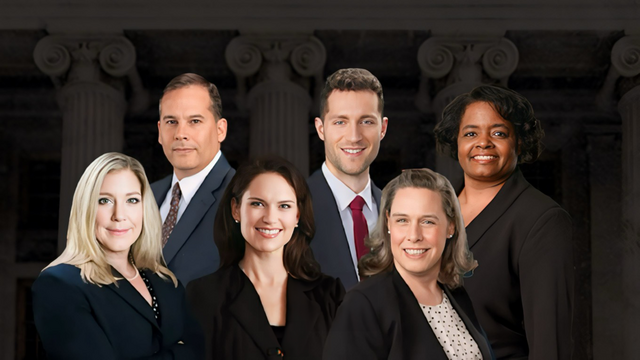Defense Strategies for Virginia Conspiracy Charges
Conspiracy laws and the interpretation of those laws can be very complicated. Conspiracy is a crime that relies a lot on the testimony of individuals. As a result, it can be difficult to reach a consensus on the act of conspiracy. However, the subjectivity of these cases is what allows attorneys to tap into a variety of defense strategies for Virginia conspiracy charges. If you face conspiracy charges, get in contact with a tenacious conspiracy lawyer who can help you start building your case.
Conspiracy Defense Tactics
There are a number of defense strategies for Virginia conspiracy charges. Potential defenses can involve the constitution. For example, the government acquires statements or information through their investigation by violating one element of the constitution. It could be the Fourth Amendment protection against searches and the seizures or the Fifth Amendment right to remain silent and the right to remain silent upon custodial interrogation. If evidence is obtained contrary to any of those constitutional amendments, that information can be excluded from the government’s case.
Withdrawal from the conspiracy is another one of the defense strategies in Virginia conspiracy cases that an attorney can use. However, several elements must be established to prove the person withdrew from the conspiracy. The person seeking to withdraw from the conspiracy must affirmatively withdraw from it and must communicate to all conspirators that they are withdrawing. The person must withdraw prior to the completion of the objective of the conspiracy.
When someone agrees to participate in a conspiracy and then just stops acting, that is not enough for a withdrawal. A person must communicate their withdrawal before the conspiracy achieves its goals. Unfortunately, that can be difficult to prove because often the government does not have access to that information and it might be difficult to recreate that information going forward at trial. As a general rule, withdrawal from the conspiracy can be a defense under conspiracy cases.
Consequences for Individuals Who Only Knew Minor Parts of the Conspiracy
It depends on the number of variables and most importantly how germane the portion of the plan they knew about was to the entirety of the conspiracy. This is a very gray area of law and is entirely fact specific. An attorney who specializes in conspiracy law can analyze each case to determine whether the facts are sufficient for defenses as well.
The legal penalties for conspiracy exclusively depend on the kind of offense in the conspiracy. If the person is convicted of conspiring to commit a capital offense, they face a Class 3 felony with a sentence of five to 20-years in state prison. A non-capital offense is a Class 5 penalty which is a period of one to 10 years of incarceration. It depends entirely on the underlying offense plotted by the conspirators.
Defense’s Approach to Investigating Conspiracy
The first thing the defense attorney looks for is whether each and every element of conspiracy can be met by the government. The government might not have enough information to prove beyond a reasonable doubt that an agreement took place between all the parties alleged to be involved in that agreement. They might not have evidence that an overt act was successfully performed by one of the conspirators. The government might have evidence they are discounting that might constitute withdrawal on the part of the client in the conspiracy. The defense attorney examines every single piece of information when they can get discovery to determine whether each element of the conspiracy can be proven at trial.
Often, the government does not have the full story when they go to trial, or at least not when they prepare charges and arrest people for the conspiracy. The defense attorney investigates the story from their client’s point of view and may be able to unearth information the government does not have that sets the client apart from the rest of the conspirators. Every case is different and has its own set of facts. If there is evidence of withdrawal or lack of intent the government is not aware of, the defense needs to find that information and be prepared to present it at trial.
Benefits of an Attorney
An experienced conspiracy lawyer will know what defense strategies for Virginia conspiracy are the most applicable to your case. Furthermore, they can carry out their own investigation in an effort to find any evidence that could strengthen your case. Contact a capable lawyer who can make a difference in your conspiracy case.




